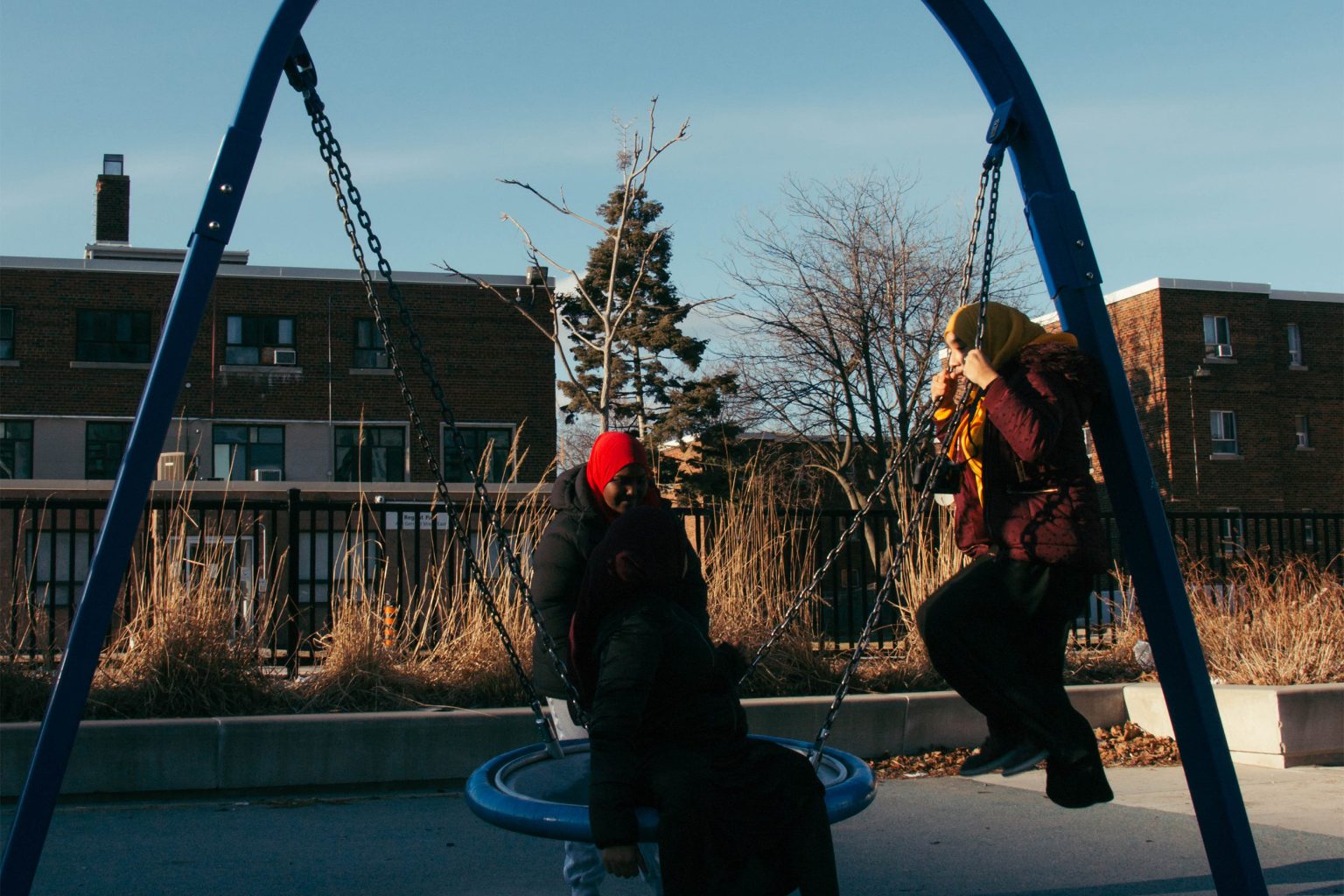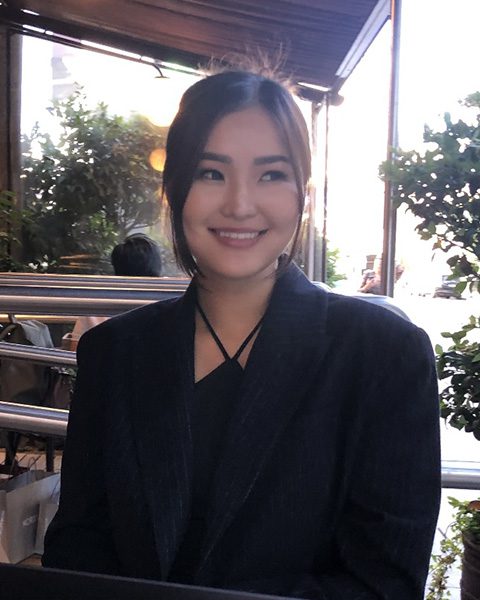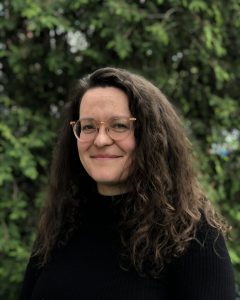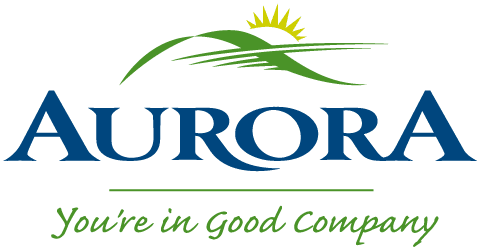Community Engagement

Toronto, a vibrant, multicultural, and rapidly growing metropolis, provides a robust backdrop for exploring a wide range of city and community-building activities in the face of pressing challenges that range from the climate crisis to affordability to various forms of inequality. Through our teaching and research, we investigate, learn from, and aim to give back to our city. Below you can find information on several USP initiatives as well as opportunities to learn more about our program and how to get involved.
Community-Engaged Learning (CEL)
The Urban Studies program offers various CEL opportunities throughout the Greater Toronto Area for students including short-term placements (URB236H1), courses in collaboration with non-profit organizations (URB430H1) or the City of Toronto (URB338H1), client-based project classes (URB431Y1, URB432H1) as well as one-year internships (URB437Y1).
Experiential Learning
Experiential learning allows you to learn through reflection on doing. Within the Urban Studies Program (USP), we focus on a specific type of experiential learning known as community-engaged learning. Community-engaged learning is at the heart of USP, offering you exciting opportunities to apply your classroom knowledge to a real-world setting, and expand your career path and professional networks.
Work with a growing list of community partners in and beyond Toronto
Community-engaged learning means we create opportunities with a wide variety of community partners for USP students to engage in and learn about specific aspects of city building, advocacy, and research.
The majority of our community partners are based in Toronto – we like to think of Toronto as our city-building laboratory – but we learned during the pandemic that we could facilitate successful partnerships remotely with community leaders far beyond Toronto. We are continuing to expand those opportunities to new cities and areas of city building.
Connect your classwork to the community
Community-engaged learning connects what we discuss in our classrooms to what is happening in the world around us. We are committed to centring communities and their perspectives within the challenges and opportunities that cities and urbanites currently face. Our goal is that your community-engaged learning experience will inspire you to develop and pursue a vision of a more liveable and just urban future.
Find the courses that speak to your goals and interests
Second year:
You can find courses with a community-engaged learning component beginning in second year. For example, URB236: A Multidisciplinary Introduction to Urban Studies II: Urban Changes and Theoretical Application, gives you the opportunity to be matched with a community organization for a 12-hour placement. This becomes the basis for a final paper and an academic poster – both of which work to connect course readings and discussions to the experiences of working on city building.
Third year:
There are several third-year courses with a community-engaged component. For example, in URB337: Housing and Homelessness, you will engage with policy and lived-experience experts who are working to address a myriad of issues related to homelessness. And one of our newest courses, URB338: City Challenges, City Opportunities in a 21st-Century Toronto, is a partnership between the City of Toronto and several other colleges and universities in the city. You will get to hear directly from policy makers and experts on a range of challenges facing Toronto.
Fourth year:
Community-engaged learning is a central component of many of our fourth-year courses, including our two capstone options. In URB437: Experiential Learning in the GTA, you’ll be matched with a community-building organization in Toronto for an eight-hour-per-week placement that runs from September to April. Class time is used to reflect on your placement experience, and to connect this to the academic study of the city.
In URB431: The Multidisciplinary Urban Capstone Project, you will be part of a team of undergraduate students from departments and faculties across the St. George Campus that is matched with a community organization to consult on a design challenge identified by the organization. You will work to provide options, and ultimately a prototype of a design solution.
URB430: The Changing Culture of Regent Park is a partnership between USP and Focus Media Arts Centre in Regent Park. You will work closely with youth from Regent Park to produce a media project addressing a specific issue in the community. These projects are featured in a public exhibition at the end of the course.
In URB432: Advanced Topics in Urban Studies – Urban Studio: Public Participation in Policy Making, you will learn how to design and implement a community engagement process, and apply this knowledge towards the creation of a project or report for a real-world client.
Student acquires important skills in MaRS placement

Eny Ross
Fourth-year student, double-major in urban studies and human geography; minor in art history Over the course of my eight-month internship with the MaRS Discovery District’s Smart Cities team, I have gained a comprehensive understanding of MaRS’s sustainability efforts, and had the immense opportunity to work on their current project, MIIF (Municipal Impact Investment Fund). My experience at MaRS has allowed me to acquire soft skills such as teamwork, time management, and the ability to communicate consistently and clearly. I also received training in engaging with various stakeholders, forming positive relationships, and problem-solving in the field of sustainability and urbanization, while working with various Canadian municipalities. All of these will transfer to my academic studies in the Urban Studies Program, as well as to my professional and personal life. I am extremely happy with how much value I received from this internship, and I would like to thank Professor Roberts and Professor Visan for this opportunity through the URB437 course.
Activating Community Leadership in Toronto
The Urban Studies Program and the Toronto Centre for Community Learning and Development (TCCL&D) co-designed and co-facilitate a nine-week community leadership survey course for Regent Park residents covering the fundamentals of civic participation and political power. You can read more about this initiative, watch videos of course sessions, and learn how to join future iterations of the course here.
Community Engagement - Activating Community Leadership
About this course:
The Urban Studies Program has a longstanding partnership with the Toronto Centre for Community Learning and Development (TCCL&D), a Regent Park-based organization focused on uplifting the leadership of local residents and creating transformative neighbourhood change.
Through this partnership, and with support from the School of Cities, we have co-designed a nine-week community-leadership survey course for Regent Park residents covering the fundamentals of civic participation and political power.
Course content ranges from the mechanics of Toronto municipal government to the structures of institutional racism. The course sets participants up to organize and incite change around a local neighbourhood issue of concern.
ACCESS THE COURSE ON QUERCUS >
Help us grow
Our goal is to expand this program to other neighbourhoods in the Greater Toronto Area. If you are community-based organization interested hosting this course, please be in touch with:
Aditi Mehta - Assistant Professor, Teaching Stream
aditi.mehta@utoronto.ca
416-978-7463
Research
USP core faculty members, Dr. David Roberts and Dr. Aditi Mehta, are committed to community-based and community-engaged research in Toronto and have ongoing research projects throughout the city. These include:
-
Urban Change in Moss Park
-
Public Spaces of Toronto
 Community Partners
Community Partners
One of the hallmarks of the Urban Studies Program is connecting our research, teaching, and students to city builders throughout the GTA and beyond. Reflecting our multidisciplinary approach to studying cities, we work with a wide variety of city-builders on a range of issues that shape cities and urban life. If you are working on urban issues, we would love to hear from you and would be happy to discuss what a partnership between you/your organization and the Urban Studies Program might look like — from community-engaged learning/student placements to research to events or something else.
Partner with USP - Community Partners
The Urban Studies Program (USP) relies on its local, regional, and national partner-organizations to create opportunities for student placements, team projects, volunteer work, co-curricular events, speakers, and student employment, as well as other forms of dynamic community-engaged learning.
What is community-engaged learning?
Community-engaged learning often involves moving beyond the classroom, so that students learn in and with different communities and community organizations. It is a form of experiential learning that allows students to gain and apply knowledge and skills in a real-world context — and helps organizations to address their own needs. We also welcome community experts into our classrooms as guest speakers, co-facilitators, and instructors.
Is my organization eligible?
USP counts on many community partners, broadly working in city-building, including:
- City or municipal administrations
- Think tanks and innovation hubs
- Not-for-profit groups
- Social service agencies
- Grass-roots community organizations
- Social enterprises
Currently, we work with the City of Toronto, Evergreen, Regent Park – Focus Media Arts Centre, the Canadian Urban Institute, MaRS Discovery District, the Kensington Market Community Land Trust, Spacing magazine, and many others.
We are always on the lookout for new partners, and new ways of partnering. Please contact us if you have questions or ideas about working with us.
Why partner with us?
Beyond the significant benefits to students who gain on-the-ground experience, and a foundation to become leaders in their field, the advantages to your organization are many and meaningful:
- Highly motivated and engaged students can help address your organization’s identified needs and gaps, including programs, services, and initiatives.
- Students bring a fresh, new perspective and skill set to your organization.
- Students could be your future talent, bringing organizational knowledge and known skills to a position.
- You have an opportunity to educate students on your organization’s goals, priorities, and challenges.
- You will build a relationship with the University, with the potential for new knowledge-exchange opportunities, partnerships, and connections.
- You are making a significant contribution to fostering the development of socially engaged citizens who are ready to lead.
What kind of commitment is needed?
The Urban Studies Program has several community-engaged-learning courses that require varying levels of support and commitment from our partners. These include:
- Short volunteer placements of 12 hours within one month
- Eight-hour-per-week internships
- Guest lecturer and advisor positions for your organization’s staff
- Other opportunities designed to fit your organization’s needs and USP course requirements
- Co-curricular opportunities not directly linked to individual courses, including requests for speakers, conference participation, mentorships, entrepreneurship, and start-up partnerships
What kind of work have students done with community partners?
See how USP students learned about the inner workings of Toronto City Hall in a partnership with CivicLabTO.
Learn how seniors in long-term care homes partnered with USP students in an oral-history research project. Read a U of T News article on the same qualitative research project.
Read about a unique partnership between FOCUS Media Arts Centre in Toronto’s Regent Park neighbourhood and USP students, working together to change the conversation about under-represented and marginalized communities.
What our community partners are saying
 Shelagh Pizey-Allen
Shelagh Pizey-Allen
TTCriders
Urban Studies students have made significant contributions to TTCriders campaigns for transit justice, affordability, and accessibility. Students contribute their talents to community organizing and civic engagement efforts by organizing public presentations, facilitating meetings, conducting research, connecting with volunteers, and more.
 Lisa Hausz
Lisa Hausz
Manager, Economic Development & Policy, Town of Aurora
The Town of Aurora engaged with Innis College at the University of Toronto as part of a partnership in providing meaningful experience for students, while gaining valuable contributions on various strategic initiatives. The students were professional and eager to assist with a variety of projects. We strived to provide tasks and responsibilities that helped to build resumes and portfolios, and that students can be proud to discuss with future employers.
 Ryan Lo
Ryan Lo
Co-founder, Urban Minds
Within a mere few weeks, our placement students, Sara and Michelle, did a fantastic job creating visual content for our social media campaign. Their work helped to promote the launch of our new youth engagement toolkit, Cities For Youth, and successfully engaged our online audience in fun and interesting ways. Thank you, Sara and Michelle, as well as David and Emily, for this great partnership.
We couldn’t do it without you!
Thank you to all our community partners! Your longstanding support of the Urban Studies Program has had an invaluable impact on the academic and career successes of our students, and has also made our program one of the strongest and most relevant in Canada. We couldn’t do it without you!
-David Roberts, USP Program Director
Interested in learning more about community partnerships?
Need more information about community-engaged learning and partnering with the Urban Studies Program? Have an idea on how your organization can participate? Not sure your organization’s goals and needs are a match with any of our courses? We are always looking for new partnership opportunities and ideas, including those outside the classroom, so please contact us for a chat.
David Roberts - Director & Associate Professor, Teaching Stream
d.roberts@utoronto.ca
416-978-7790



